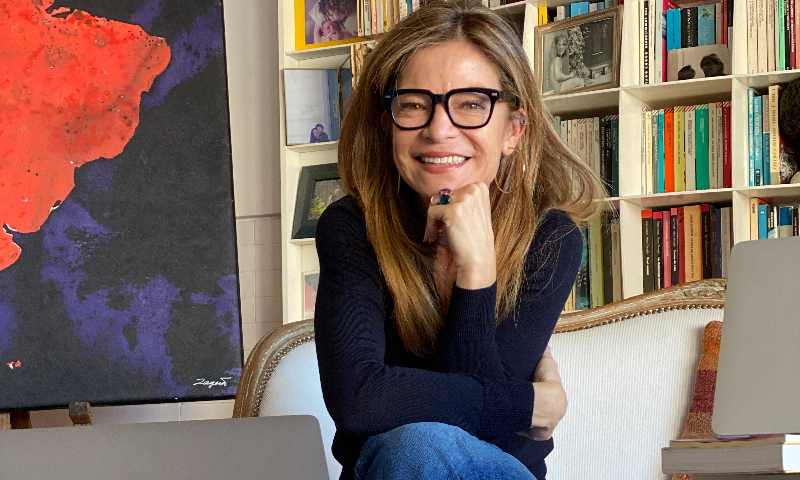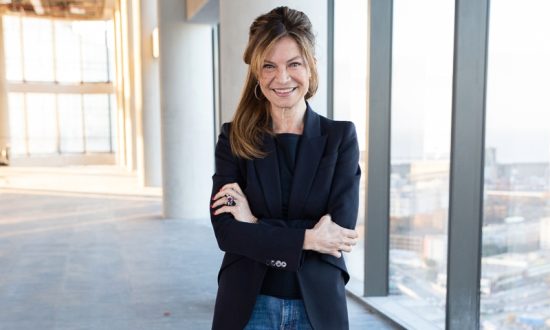Dr. Elena Morettini has a long track record in the Energy Industry, including R&D. Given her scientific experience and background, she was appointed in November 2020 as Global Head of Globant’s Sustainable Business Studio. At institutional level, Elena has enthusiastically worked as Vice-Chair for the Horizon 2020 Marie Sklodowska Curie Research Networks program of the European Commission since 2004. Also, Elena currently has been nominated among the best 10 Carbon Neutral Speakers in Europe for the year 2023.
In January 2020 she co-founded Because Energy MatterS, a knowledge company specialized in strategic consulting on sustainability, climate change policies, climate finance, carbon management and sustainable Organizations. As a strong believer that each industry needs to be accountable for its own emissions, Elena is leading in Globant the practice of Green IT which seeks to create technology with the lowest possible energy consumption rates.
Recently, in an exclusive interview with Digital First Magazine, Dr. Morettini shared her professional journey, her current roles and responsibilities as Global Head Sustainable Business at Globant, her biggest stress relievers, future plans, pearls of wisdom, and much more. The following excerpts are taken from the interview.
Dr. Elena, please tell us about your background and areas of interest.
At Globant, I lead our Global Sustainable Business Studio – where we work to support clients from all industries, maximize the use of data, innovation, and technology to build impactful, tailored solutions for decarbonization and ESG in general. I am very passionate about finding new solutions through blockchain, AI and Hyperautomation to speed up activities and strategies that will benefit people, planet and business. This is what I do today.
In the past, as a geoscientist and woman in STEM working within the energy industry, I have spent my career in climate modeling, energy transitions and methane emissions capture, advocating the smartest ways to accelerate all of them.
My PhD in Earth Science really opened my eyes to the world of planet boundaries and sustainability – and how critical it was that businesses took the challenge ahead seriously. From there, I co-founded my own startup – BecauseEnergyMatters – dedicated to climate finance and carbon management, as well as diversity and inclusion. I’ve also held advisory roles, focusing on energy transitions and sustainability strategy, including positions at the European Commission and Instituto Argentino del Petróleo y del Gas.
Since joining Globant, I believe more than ever that technology plays a critical role in addressing our global environmental and social challenges. I’m focused on innovating and reshaping strategies for companies to become not just climate neutral but climate positive.
How can disruptive technologies such as AI help organizations accelerate their climate and sustainability commitments to investors and customers?
New technology trends imply a rush to implement them! We’ve certainly seen that this year with generative AI. My first recommendation would always be to take a step back and become aware, educated about that specific new technology to fully understand and calculate its full ESG impact. Tech has an energy consumption aspect that can imply intensifying emissions. When that is the case, we need to know the numbers associated with it!
Artificial intelligence (AI) plays an absolute role in finding, accelerating, and scaling up sustainability solutions and commitments. The automation of climate data collection and analysis is ultimately transforming our abilities to take real-time climate decisions that optimize resource usage, waste, and carbon emissions – but it comes at the cost of increased energy consumption. We need to consider that.
Tell us about your roles and responsibilities as Global Head Sustainable Business at Globant.
As the Global Head of Sustainable Business at Globant, I oversee the development and implementation of our sustainability-oriented tech services and I cooperate with the corporate sustainability sector to decide on our best sustainability strategies for Globant.
My role also involves collaborating with cross-functional teams to drive innovation in sustainable solutions, nurturing partnerships, and championing Globant’s commitment to environmental stewardship.

What are some important priorities in front of you for your net zero journey?
Achieving net zero emissions is a top priority for Globant: we moved to 100% renewable electricity in 2020 and achieved carbon neutrality in 2021.
Our decarbonization journey continues to evolve and we are now focusing on reducing our operational carbon footprint, continuing using renewable energy sources only, and offsetting and carbing any remaining emissions. We’re also committed to fostering a culture of sustainability within our organization, ensuring that every Globant employee is engaged in our decarbonization efforts.
You have been serving as Vice-Chair for Marie Curie Industry-Academia Partnerships and Pathways Horizon2020 – Energy & Env at the European Commission since 2004. Please brief us about your key priorities and goals.
My role as Vice-Chair for Marie Curie Industry-Academia Partnerships and Pathways Horizon 2020 – Energy & Environment has been selecting projects that would foster collaboration between academia and industry in the fields of energy and the environment, shaping the European scientific area. Key priorities include promoting innovative research, supporting knowledge transfer, facilitating the development of scientific talent at all levels. Our goal is to bridge the gap between academic research and practical industry applications, ensuring that cutting-edge research contributes to addressing global energy and environmental challenges, educating young and senior researchers to increase their employability.
As the Co-Founder of Because Energy MatterS, what are the challenges you see facing your sector right now? How can we overcome those challenges?
In the face of increasingly comprehensive and nuanced policy and regulatory hurdles, the energy and sustainability sectors need rapid technological innovation to scale-up their sustainability efforts.
Partnerships and collaboration is essential to facing these challenges head on – we need to pool as much expertise and knowledge across sectors as possible. Those that can must invest in research and development to drive innovation and advocate for supportive policies. Startups can help large legacy companies innovate; large legacy organizations can help startups scale. We have to work together in an inclusive way — it’s the best and only way.
In your academic or work career, were there any mentors who have helped you grow along the way? What’s the best piece of advice you have ever received?
Throughout my career, I’ve had the privilege of learning from mentors and peers who have been so precious in my growth. Being a rebellious spirit, I have always thrived in change, which also implies insecure grounds around and ahead. Without the support of peers and mentors, I would not have been able to perceive a safe environment for that change-making attitude to persist. I have received fantastic constraints and suggestions, as well as encouragement, two very precious of which are about authenticity and knowledge or learning. The ever-evolving landscape of sustainability and technology demands continuous learning and adaptation. Embracing change and seeking knowledge from diverse sources have been essential to my personal and professional development.
What’s a leadership lesson that you’ve learnt that’s unique to being a female leader?
Do not underestimate the value of resilience and perseverance. In male-dominated fields like energy and technology, women are outnumbered and struggle to get voice heard – don’t give up. And look to see who you can help along the way: the more women we bring to the table, the easier it will be to make sure voices are heard. Nevertheless, I think that leadership is a matter of talent, ethics, charisma and hard work, all genderless characteristics.

What is your biggest stress reliever?
Seaside. The surroundings of any sea, being a mediterranean person, is my medium. And as a geoscientist I feel better if my work contributes to the preservation of these natural treasures. Still, the smiles and happiness of my kids is the greatest balm to any stress. Let me also say that this phase of my life and career brings more joy than stress to me!
Where do you see yourself in 5 years from now?
I wish to be able to see many industries materialize their Agenda 2030 and those sustainability roadmaps that we have contributed to create. I want to see real change in how leaders embed sustainable practices in the foundation of their businesses.
I also hope to be mentoring and empowering the next generation of sustainable leaders – learning from them as well as helping them on their own career paths!
And on a more personal wishlist level, I want to become the Chief Sustainability Officer of a football club, to please and surprise my kids!
What would you advise to new sustainable leaders on where to start?
Start by building a strong foundation of knowledge in science and data-based sustainability. Continue by surrounding yourself with smart and talented people, together with whom work out areas that you can carve out as your innovation niche. The landscape is changing all the time – stay constantly informed about the latest trends and innovations, trying to avoid dogmas and paradigms.
Connect and share ideas, reach out to sustainability and inspiring leaders with no shyness.
Lastly, never underestimate the power of persistence. Sustainable change takes time and dedication, you’ll face some challenges along the way, but the impact is worth the effort.






